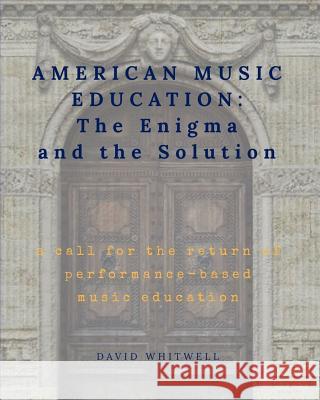American Music Education: The Enigma and the Solution » książka
American Music Education: The Enigma and the Solution
ISBN-13: 9781936512898 / Angielski / Miękka / 2016 / 320 str.
Beginning in the mid-twentieth century American music educators began a shift toward teaching "Conceptual" aspects of music for the purpose of accountability in the new science led world. But "Conceptual Music Education" is not music at all and the students know it. The students already love music when they arrive at the school door and they want to make music. Because American Music Education is no longer centered on performance, vast numbers of students go home and teach themselves to sing, compose and play keyboard instruments-all without the supervision of professional musician/educators. American Music Education has become largely a provider of activities to entertain the public and to serve as a means of begging for financial support. But all American adults have sufficient genetic understanding of music to recognize the difference between teaching music and teaching activities. The benefits for the child of real music education has enjoyed the testimony of 3,000 years of educators and philosophers. This book argues for the restoration of this ancient experience and points to the benefits for the child in making music, as opposed to just learning about music. In our contemporary language these special benefits are found only in the right-hemisphere of the child's brain, which is also where the child himself is found. All talking and writing about music is exclusive to the left-hemisphere of the brain, is secondary observations of other persons and is, most significantly, all entirely past tense, whereas the child before us is in the present tense.











